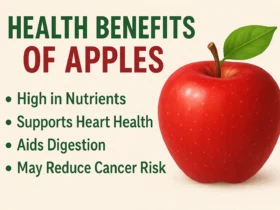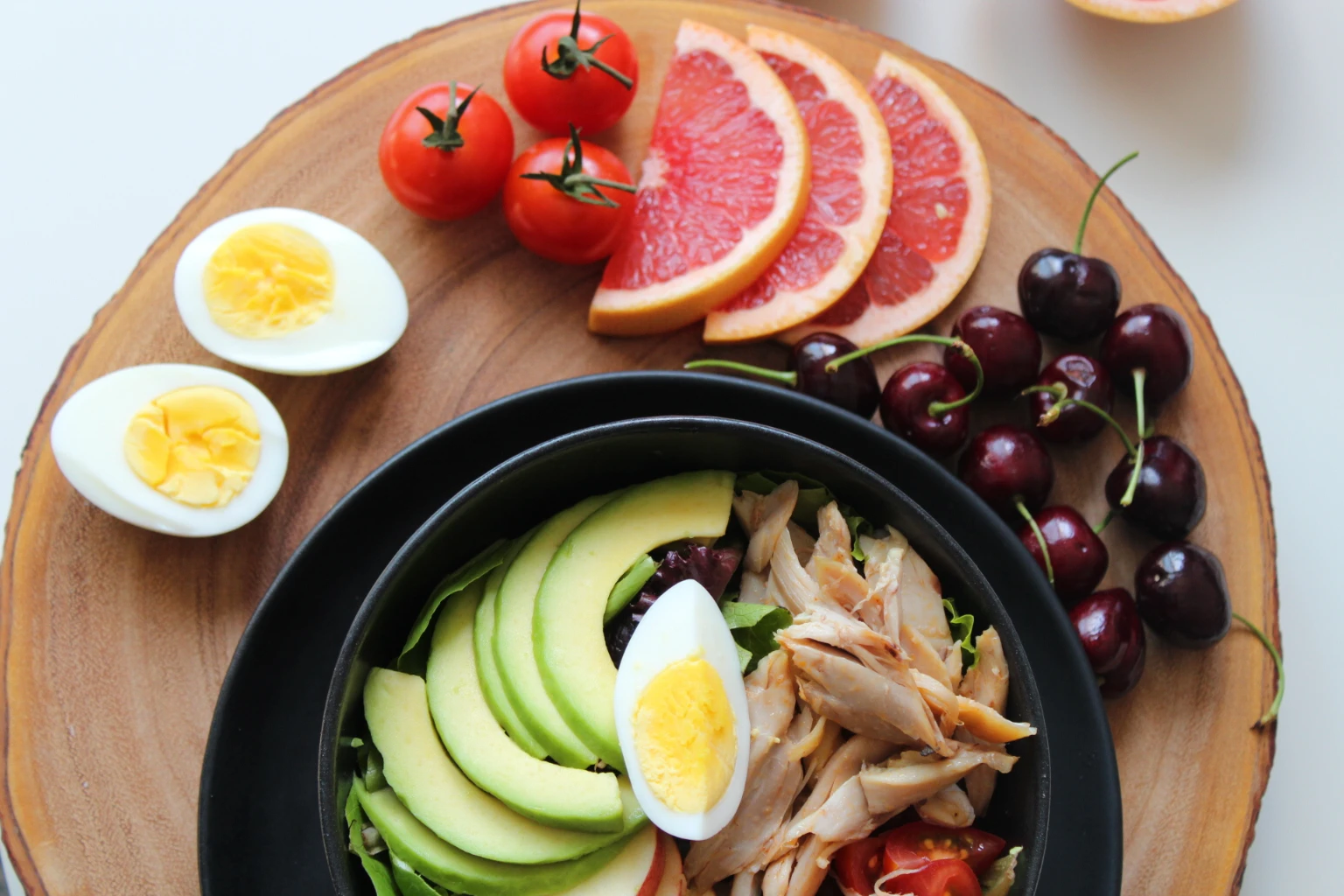Digestive discomfort such as bloating, gas, constipation, or diarrhea can affect anyone, regardless of age. Whether caused by medical conditions like irritable bowel syndrome (IBS), gastritis, or simply poor dietary choices, optimizing your diet for easier digestion is essential for good health.
Fortunately, certain foods are known to be gentle on the digestive system and help promote smooth nutrient absorption without overburdening your gut.
In this detailed guide, we will explore 10 food groups that are easy to digest, how they benefit digestion, and practical tips to incorporate them into your daily meals.
1. Low-Fiber Fruits
Fruits are a critical source of vitamins, minerals, and antioxidants, but not all fruits are easy to digest. Some high-fiber fruits, especially those rich in insoluble fiber, can cause digestive issues in sensitive individuals. For easy digestion, focus on fruits that are lower in fiber and gentle on the stomach.
✅ Examples of Easy-to-Digest Fruits:
- Bananas
- Melons (like cantaloupe and honeydew)
- Apples (peeled)
- Papayas
- Watermelon
🌱 Why They Help:
- These fruits are low in fiber and rich in water content, which makes them easy to break down.
- Papaya contains an enzyme called papain, which helps break down proteins and aid digestion.
- Bananas are soothing for the stomach and provide potassium, which helps in maintaining electrolyte balance.
💡 Tip:
- Always consume peeled fruits to minimize fiber content.
- Fresh or lightly cooked fruits are preferred over raw ones for better digestibility.
2. Well-Cooked Vegetables
While raw vegetables are packed with nutrients, they are often harder to digest due to their high insoluble fiber content. Cooking helps break down cell walls and make vegetables gentler on the digestive tract.
✅ Examples of Easy-to-Digest Vegetables:
- Carrots
- Zucchini
- Pumpkin
- Potatoes (without skin)
- Spinach (cooked)
🌱 Why They Help:
- Cooking softens the fiber, making it easier to digest.
- Potatoes and squash provide easily digestible starches.
- Spinach is rich in iron and other essential minerals but becomes easy to digest when cooked.
💡 Tip:
- Steam or boil vegetables instead of frying or roasting to retain nutrients and improve digestibility.
- Avoid gas-producing vegetables such as cabbage, broccoli, or cauliflower if you have a sensitive stomach.
3. Lean Proteins
Proteins are an essential part of a balanced diet, but heavy or fatty proteins can burden the digestive system. Choosing lean protein sources is important for optimal digestion.
✅ Examples of Easy-to-Digest Proteins:
- Chicken breast (skinless)
- Turkey
- Fish (cod, sole, haddock)
- Tofu
- Egg whites
🌱 Why They Help:
- Lean meats contain less fat, which reduces the workload on digestive enzymes.
- Fish provides omega-3 fatty acids that are easier to digest than saturated animal fats.
- Tofu is plant-based and gentle for people with weak digestive systems.
💡 Tip:
- Grill, steam, or poach proteins rather than frying.
- Avoid spicy or heavily seasoned meats.
4. Refined Grains
Whole grains are rich in fiber but not always easy to digest for people with gastrointestinal issues. Refined grains, in moderation, are gentler and provide essential carbohydrates for energy.
✅ Examples of Easy-to-Digest Grains:
- White rice
- White bread
- Pasta (preferably made from refined flour)
- Cream of wheat
- Rice noodles
🌱 Why They Help:
- Lower fiber content reduces the risk of bloating and gas.
- Refined grains are broken down quickly and easily absorbed into the bloodstream.
💡 Tip:
- Pair refined grains with easily digestible proteins or cooked vegetables to create balanced meals.
- Limit refined grains in your diet to avoid nutritional deficiencies.
5. Dairy (Lactose-Free or Low-Lactose Options)
For many people, lactose in dairy products can be difficult to digest, causing bloating and gas. However, some dairy products are easier to digest and can be included in a gentle diet.
✅ Examples of Easy-to-Digest Dairy:
- Lactose-free milk
- Greek yogurt (low in lactose)
- Hard cheeses (cheddar, Swiss)
- Kefir
🌱 Why They Help:
- Fermented dairy products (like yogurt and kefir) contain probiotics that aid digestion.
- Lactose-free dairy eliminates the cause of discomfort for lactose-intolerant individuals.
💡 Tip:
- Start with small servings to assess tolerance.
- Opt for plain varieties without added sugars or artificial flavorings.
6. Healthy Fats in Small Quantities
While fats are essential for overall health, large amounts of fat can slow digestion and cause discomfort. However, some fats are easier to digest and beneficial in small quantities.
✅ Examples of Easy-to-Digest Fats:
- Olive oil
- Avocado (small portions)
- Coconut oil
- Flaxseed oil
🌱 Why They Help:
- Monounsaturated and polyunsaturated fats are easier to digest than saturated or trans fats.
- Olive oil contains anti-inflammatory compounds that can soothe the digestive system.
💡 Tip:
- Use healthy fats for light dressings or cooking.
- Avoid heavy sauces or fried foods.
7. Bone Broth and Clear Soups
Bone broth is often recommended for digestive health due to its easily digestible nutrients, collagen, and amino acids. Clear soups also provide hydration and gentle nutrition.
✅ Examples of Easy-to-Digest Broths:
- Chicken bone broth
- Vegetable broth
- Miso soup
🌱 Why They Help:
- Bone broth contains gelatin, which supports gut lining integrity and aids digestion.
- Clear soups provide hydration, vitamins, and minerals without bulk.
💡 Tip:
- Drink bone broth as a snack or use it as a base for easy-to-digest meals.
- Avoid creamy or heavy soups during digestion issues.
8. Fermented Foods
Fermented foods contain beneficial bacteria (probiotics) that can enhance gut health and aid digestion. They can improve the balance of good bacteria in the digestive tract.
✅ Examples of Easy-to-Digest Fermented Foods:
- Yogurt (plain, probiotic-rich)
- Kefir
- Sauerkraut (in moderation)
- Kimchi (mild versions)
- Miso
🌱 Why They Help:
- Probiotics help break down food and restore gut flora.
- Fermentation pre-digests certain compounds, making them easier on the digestive system.
💡 Tip:
- Choose products without added sugars or preservatives.
- Start with small amounts to avoid bloating.
9. Herbal Teas
Though not technically a food group, herbal teas can significantly support digestion by soothing the stomach and promoting gut motility.
✅ Examples of Digestive Herbal Teas:
- Ginger tea
- Peppermint tea
- Chamomile tea
- Fennel tea
- Licorice root tea
🌱 Why They Help:
- Ginger stimulates digestive enzymes and reduces nausea.
- Peppermint relaxes intestinal muscles and relieves gas.
- Chamomile has anti-inflammatory properties that calm the gut.
💡 Tip:
- Sip herbal teas between meals for optimal benefits.
- Avoid high-caffeine teas if you’re sensitive to stimulants.
10. Eggs
Eggs are a complete protein source and are generally well tolerated by most people. They are soft, easy to digest, and highly nutritious.
✅ Egg Preparations for Digestive Health:
- Boiled eggs
- Poached eggs
- Scrambled eggs (without butter or heavy oils)
🌱 Why They Help:
- Eggs contain high-quality proteins and essential amino acids that support body repair.
- They’re low in fiber and fat when prepared simply.
💡 Tip:
- Avoid fried eggs or eggs with heavy seasoning if you experience digestive issues.
- Limit consumption if you suspect egg sensitivity or allergy.
✅ Final Tips for Better Digestion
- Eat smaller, more frequent meals instead of large heavy meals.
- Chew food thoroughly to aid the digestive process.
- Stay hydrated with plenty of water and herbal teas.
- Avoid carbonated drinks and artificial sweeteners.
- Listen to your body—eliminate foods that consistently cause discomfort.
✅ Conclusion
A diet focused on easily digestible foods is beneficial for maintaining digestive health, managing symptoms of IBS, gastritis, or general digestive discomfort, and supporting nutrient absorption. Incorporating low-fiber fruits, well-cooked vegetables, lean proteins, refined grains, healthy fats, fermented foods, bone broths, herbal teas, and eggs can make a huge difference in how your body processes food.
By making smart food choices and paying attention to your body’s signals, you can enjoy delicious, easy-to-digest meals that promote health, vitality, and comfort every day.













Leave a Reply